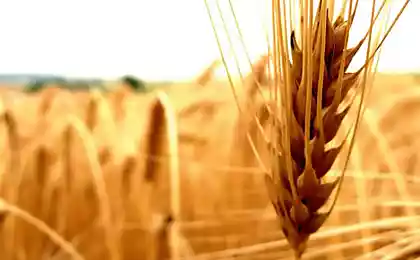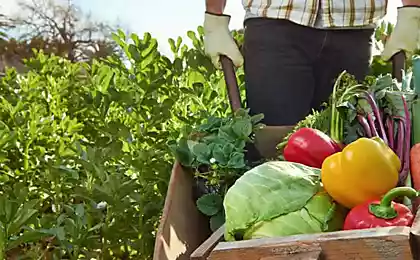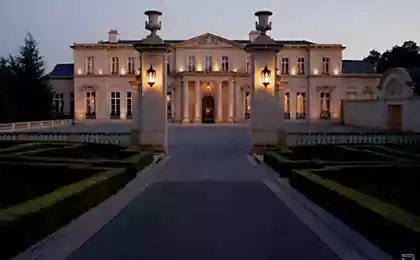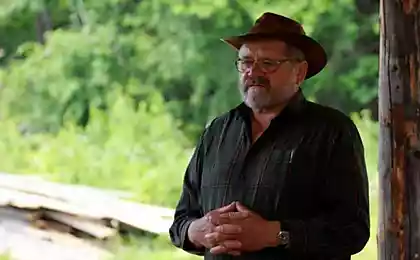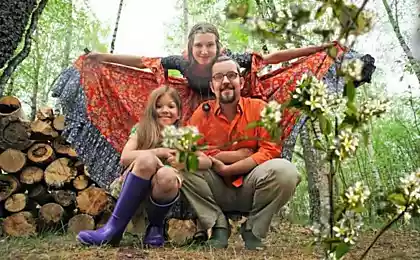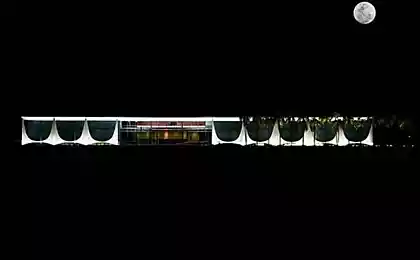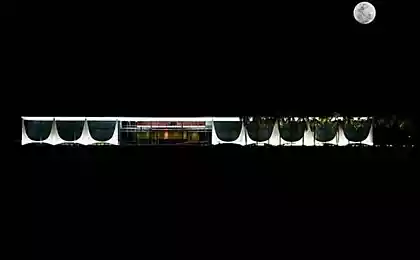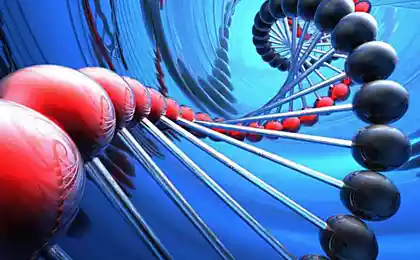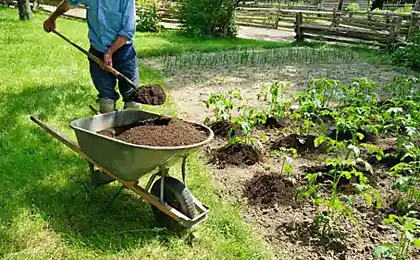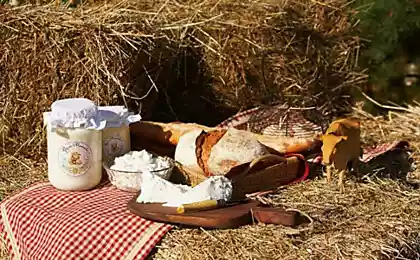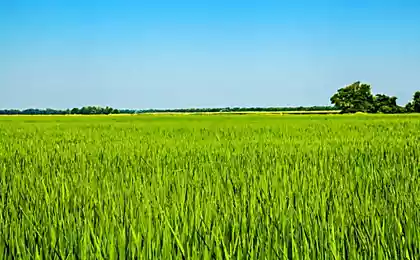440
6 tips on natural farming from the family estate chick Elga
In the family estate chick Elga from Bashkiria for 5 years practiced methods of natural farming. Their advice is divided into the family of albert Ibatulina.

1. The earth is not done! Processed only the top 5-7 cm of soil. Digging, as well as the turnover of the reservoir at mechanical plowing leads to mixing of soil layers. And then the soil microorganisms of the upper layer aerobic (breathing) embedded deep into the soil, and the depth of the "residents" of anaerobic (not breathable), fit up, it leads to destruction and those and others. When digging is also "shrunk" a lot of worms. So why dig if this destroyed the main "prospectors" of the soil (microorganisms and worms) that form the fertile humus of the soil. Also digging disrupts the natural porous structure of the soil. The answer is NOT to DIG! The treated soil ploskorez Fokin hoe. Garden forks, if you want, you can "loosen" the tight areas, without turning the earth.
2. Covered the soil with mulch (a thick layer of organic matter), it allows you to keep valuable moisture in the soil in summer, prevents the growth of "weed", is a fertilizer, promotes activity of soil microorganisms, as well as protecting the soil from winter freezing. As you can see the "pros" are numerous. The meaning of the following, in the nature of the soil is always covered! For example, in the forest foliage, meadow plant remains. Also the way we do. All the beds all the year round we are covered with hay, wood chips, sawdust, cardboard, use anything you have on hand!
3. Use of green manure plants. Green manure — growing plants with a developed root system. Used to structure, deep loosening of the soil. Some of them enrich the soil with nutrients (legumes). The tops of the green manure is worked into the soil as fertilizer or mulch goes on. For example, my mother, enthusiastically tells about his experience planting mustard (green manure) in the garden immediately after harvest. Says that in the spring on these beds, even without digging, surprisingly loose and fertile land.
Zamulchirovat patch like this go in the winter.
4. The crop rotation. Every season change the place of landing of cultures, i.e. changing the assignment of beds. Why? Because the plants in the process of life produce substances that are toxic to this same culture, i.e. plants carry out a fight against competitors of its own kind.
5. Mixed planting. Try to plant different crops together. Moving away from monoculture, with all its disadvantages (competition, pests). Different plants have roots of different lengths, the peak activity at different times, they need different nutrients. Therefore, they do not compete and often contribute to the creation of favorable conditions for its "neighbor". There are very good classic combinations: onion and carrots; marigolds, planted near cabbage deters butterflies-pests; phacelia mixed with potatoes reduces populations of the Colorado potato beetle, etc.
6. Do not use synthetic fertilizers, poisons, growth accelerators These supplements are upsetting the balance of nature, are poisons for all living organisms, including humans.
The use of natural microorganisms, fertilizing. We like to use homemade dressing, make infusion of herbs. All just a barrel of 50 liters fill with water, put back the tops of plants, more nettles, a little sage, or any herb, what you want... Put in the sun. After a few days (readiness is determined by a sharp smell) infusion of natural microorganisms and pulp from herbs with nutrients ready. You need to use it additionally diluted with water in ratio of 1:10. Shedding this solution their beds, we noticed a significant increase in plants look like they have become more strong and healthy.
What does the use of these methods?

First, formed a healthy living soil: structured, with a lot of soil channels. In the beds under the mulch the soil is loose, soft, moist even on hot dry days it is teeming with life, a huge number of microorganisms, insects and worms. This year, the garden was watered, it all came down to the Strait with fertilizer several times per season. From year to year the soil becomes more fertile and increases the layer of humus! And then fully reveals the essence of the earth-Delia (to do the ground!)
Second, less work: don't dig, don't pour. Weed is much less because of fewer weeds. And the attitude to weeds, we have more, they are more "employees" of the garden, often not bothering, at least until it is obvious you do not begin to crush "cultivated plant". Fewer pests, and hence the hassle associated with them.
Third, get a full, healthy, delicious fruits that keep well, because of the absence of disease.
As well as the decline in acreage at a constant increase in the number and quality of the crop!
"Weeds" do not destroy, and control. In moderation it does not interfere.
We also used in gardening advice and the principles of Holzer's Permaculture:
— Try to use sustainable, time-tested varieties of plants. Zoned, national selection and from approved suppliers. Hibrination do not use, to create the seed Fund.
— Holzer encourages all to keep bees. We maintain an apiary on the principles of natural beekeeping. As you know the bees contribute to pollination, the variety of vegetation on the ground. Increase the yield of crops.
— For treatment of virgin land for future garden beds used "chicken tractor". Live chickens in the summer and graze on the steppe in a mobile pen, eat the vegetation and fertilize the soil, partly cultivated by her. Then move the chickens further, and in the prepared soil loose 5 cm, and mulching the garden bed is ready.
— Holzer recommends to build on the site of the reservoirs, storage of water in the natural type. The lake or pond. They will enhance the groundwater level in the area, humidity in the dry period, stabilize the temperature during short-term frost. I.e., the reservoirs create favorable conditions for the garden. So last year we dug a pond and lake on the estate.
— Create a plot of various microclimatic zones. Next to the reservoirs from excavated soil built protective earthworks (ridge), height 1.5 m and 3 m.
Are their observations: in Bashkortostan recent years, hot and dry in late summer there is little rainfall. Therefore, the garden with roots located in partial shade (morning sun, afternoon shade) gave the best result, as it does not dry out in the heat.
In spring and autumn the estate continued planting of fruit bushes and trees, planting hedges along the boundaries.
This year we have tried to do all the above recommended methods of Natural farming in the complex. And it "worked" — the harvest is received and worked with interest. Watched all the stages of the germination of plants, because in the estate live permanently.
All summer ate cucumbers, tomatoes, greens, potatoes, carrots. Have prepared for the winter squash, turnips, potatoes, carrots, beets, radishes, turnips. And these are all the gifts we received without much hassle.
In our daily diet now meals from their vegetables! Get pleasure from gifts of land. And most importantly, that the work is for the future because the soil becomes more fertile, and ready to give high yields.
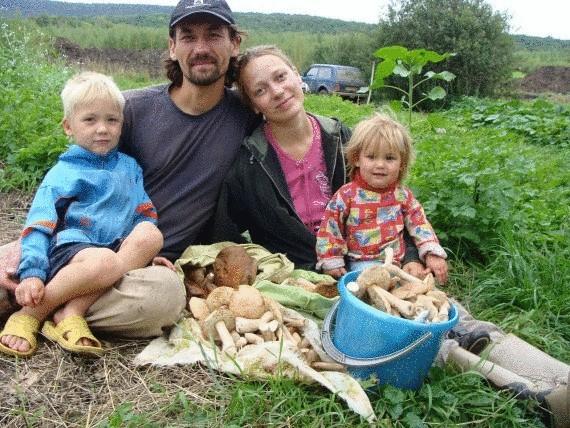
Albert Ibatulin patrimony chick Elga
Source: rodovid.me

1. The earth is not done! Processed only the top 5-7 cm of soil. Digging, as well as the turnover of the reservoir at mechanical plowing leads to mixing of soil layers. And then the soil microorganisms of the upper layer aerobic (breathing) embedded deep into the soil, and the depth of the "residents" of anaerobic (not breathable), fit up, it leads to destruction and those and others. When digging is also "shrunk" a lot of worms. So why dig if this destroyed the main "prospectors" of the soil (microorganisms and worms) that form the fertile humus of the soil. Also digging disrupts the natural porous structure of the soil. The answer is NOT to DIG! The treated soil ploskorez Fokin hoe. Garden forks, if you want, you can "loosen" the tight areas, without turning the earth.
2. Covered the soil with mulch (a thick layer of organic matter), it allows you to keep valuable moisture in the soil in summer, prevents the growth of "weed", is a fertilizer, promotes activity of soil microorganisms, as well as protecting the soil from winter freezing. As you can see the "pros" are numerous. The meaning of the following, in the nature of the soil is always covered! For example, in the forest foliage, meadow plant remains. Also the way we do. All the beds all the year round we are covered with hay, wood chips, sawdust, cardboard, use anything you have on hand!
3. Use of green manure plants. Green manure — growing plants with a developed root system. Used to structure, deep loosening of the soil. Some of them enrich the soil with nutrients (legumes). The tops of the green manure is worked into the soil as fertilizer or mulch goes on. For example, my mother, enthusiastically tells about his experience planting mustard (green manure) in the garden immediately after harvest. Says that in the spring on these beds, even without digging, surprisingly loose and fertile land.
Zamulchirovat patch like this go in the winter.
4. The crop rotation. Every season change the place of landing of cultures, i.e. changing the assignment of beds. Why? Because the plants in the process of life produce substances that are toxic to this same culture, i.e. plants carry out a fight against competitors of its own kind.
5. Mixed planting. Try to plant different crops together. Moving away from monoculture, with all its disadvantages (competition, pests). Different plants have roots of different lengths, the peak activity at different times, they need different nutrients. Therefore, they do not compete and often contribute to the creation of favorable conditions for its "neighbor". There are very good classic combinations: onion and carrots; marigolds, planted near cabbage deters butterflies-pests; phacelia mixed with potatoes reduces populations of the Colorado potato beetle, etc.
6. Do not use synthetic fertilizers, poisons, growth accelerators These supplements are upsetting the balance of nature, are poisons for all living organisms, including humans.
The use of natural microorganisms, fertilizing. We like to use homemade dressing, make infusion of herbs. All just a barrel of 50 liters fill with water, put back the tops of plants, more nettles, a little sage, or any herb, what you want... Put in the sun. After a few days (readiness is determined by a sharp smell) infusion of natural microorganisms and pulp from herbs with nutrients ready. You need to use it additionally diluted with water in ratio of 1:10. Shedding this solution their beds, we noticed a significant increase in plants look like they have become more strong and healthy.
What does the use of these methods?

First, formed a healthy living soil: structured, with a lot of soil channels. In the beds under the mulch the soil is loose, soft, moist even on hot dry days it is teeming with life, a huge number of microorganisms, insects and worms. This year, the garden was watered, it all came down to the Strait with fertilizer several times per season. From year to year the soil becomes more fertile and increases the layer of humus! And then fully reveals the essence of the earth-Delia (to do the ground!)
Second, less work: don't dig, don't pour. Weed is much less because of fewer weeds. And the attitude to weeds, we have more, they are more "employees" of the garden, often not bothering, at least until it is obvious you do not begin to crush "cultivated plant". Fewer pests, and hence the hassle associated with them.
Third, get a full, healthy, delicious fruits that keep well, because of the absence of disease.
As well as the decline in acreage at a constant increase in the number and quality of the crop!
"Weeds" do not destroy, and control. In moderation it does not interfere.
We also used in gardening advice and the principles of Holzer's Permaculture:
— Try to use sustainable, time-tested varieties of plants. Zoned, national selection and from approved suppliers. Hibrination do not use, to create the seed Fund.
— Holzer encourages all to keep bees. We maintain an apiary on the principles of natural beekeeping. As you know the bees contribute to pollination, the variety of vegetation on the ground. Increase the yield of crops.
— For treatment of virgin land for future garden beds used "chicken tractor". Live chickens in the summer and graze on the steppe in a mobile pen, eat the vegetation and fertilize the soil, partly cultivated by her. Then move the chickens further, and in the prepared soil loose 5 cm, and mulching the garden bed is ready.
— Holzer recommends to build on the site of the reservoirs, storage of water in the natural type. The lake or pond. They will enhance the groundwater level in the area, humidity in the dry period, stabilize the temperature during short-term frost. I.e., the reservoirs create favorable conditions for the garden. So last year we dug a pond and lake on the estate.
— Create a plot of various microclimatic zones. Next to the reservoirs from excavated soil built protective earthworks (ridge), height 1.5 m and 3 m.
Are their observations: in Bashkortostan recent years, hot and dry in late summer there is little rainfall. Therefore, the garden with roots located in partial shade (morning sun, afternoon shade) gave the best result, as it does not dry out in the heat.
In spring and autumn the estate continued planting of fruit bushes and trees, planting hedges along the boundaries.
This year we have tried to do all the above recommended methods of Natural farming in the complex. And it "worked" — the harvest is received and worked with interest. Watched all the stages of the germination of plants, because in the estate live permanently.
All summer ate cucumbers, tomatoes, greens, potatoes, carrots. Have prepared for the winter squash, turnips, potatoes, carrots, beets, radishes, turnips. And these are all the gifts we received without much hassle.
In our daily diet now meals from their vegetables! Get pleasure from gifts of land. And most importantly, that the work is for the future because the soil becomes more fertile, and ready to give high yields.

Albert Ibatulin patrimony chick Elga
Source: rodovid.me
